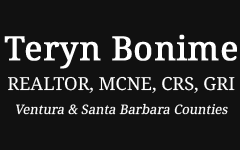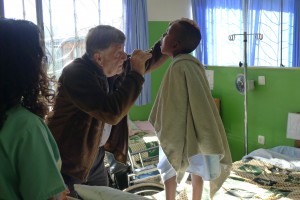In five days, my father, Joseph Clawson, transformed 22 lives by repairing cleft and lip palates, giving Ethiopian kids a chance at employment and marriage without society’s shame. After close to three decades of providing free surgeries, Dad was now at 3,000 procedures and still counting. He turned 80 the same week.
We arrived into the chaos of the Addis Ababa airport after two days of travel, heading to our hotel through a security checkpoint. The next day our driver took us to the children’s hospital where we unpacked and readied surgical supplies.
What struck me about Ethiopia were the number of people walking, the hundreds of taxis on the road and the lack of street lights. Traffic can easily gridlock, while the traffic cop watches, then slowly walks to untangle the mess. Walking by, are herds of goats, rolling steel drums, and people of all ages transporting water containers or huge baskets on their heads.
Parents are excited but anxious at screening the next day. There is sadness when a few are turned away because their child is too sick. They’re told to come back next year. Some have traveled over eight hours and are given hospital beds while waiting their turn. It is important to communicate that these deformities are not caused by an unworthy action of the parents but that children the world-over are born this way.
The next day we are introduced to the nurses and operating room staff. They are a cheerful group, wearing bright orange crocs. Most learned English in grade school so communication is easy. Later, one will ask “Is it true there is food in the grocery store just for cats?”
At lunch the staff is served traditional food which is eaten with the right hand, although we are given a plate of chicken and vegetables and silverware. I make a trade for the injera and wat, while studying the nurses, who pause and cradle their right wrist as they engage in conversation. When a visitor arrives, they each stand with bent wrist, offering their forearm in greeting.
The days are long. My father’s pattern settles in. Early to bed worn out and tired, awake before sunrise, refreshed and anxious for the day to begin. He becomes annoyed when his next patient is not yet ready. Dad wants to help as many people as he can, and has so few days. Next year he wants to keep two operating rooms going at once. Announcements are taped on walls and our driver delivers flyers to other hospitals to spread the word.
After a long day of surgery, just as we do in the morning, rounds are made on the floor. All of the patients are in one recovery room, so the mothers can keep each other company, comforting and learning from one another other. We are greeted with smiles and hands tapping lightly on their hearts. They have slept the night on hard chairs.
My father examines each baby with the help of a translator. Some will have small breathing tubes removed from their noses. Others are told to come back next year to fix the cleft palate now that the lip has been repaired. A palate case is told to stay another night for more time to heal. Usually the babies cry when dad approaches with his flashlight. The redheaded nurse from Canada, smiles, saying that they cry when they see her too.






